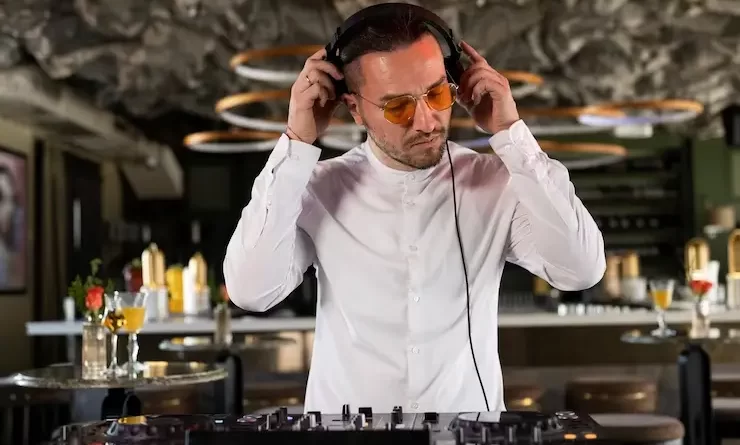What’s A DJ Mixer?
During live performances, disc jockey (also known as DJs) blends various audio sources and sound effects with the use of a piece of equipment called a DJ mixer. In addition to enabling the DJ to generate his or her audio through the use of various sources, a DJ mixer makes it simpler for a DJ to play music constantly and without any pauses, ensuring that the audience can continue dancing without interruption or even a single minute of stillness. A DJ mixer unit is comparable to other types of audio mixers in several respects; nevertheless, due to the unique nature of the DJ’s equipment, a DJ mixer is distinguished from other types of audio mixers. The majority of mixers include the capability to record audio, which allows the DJ the ability to create an original mix that can be played on cue.
The DJ mixer is nearly identical to other types of audio mixer. It takes one or more audio sources and makes adjustments to them by modifying the fundamental elements that make up the sound of the audio. One of the characteristics that distinguish a mixer from other audio devices is the crossfader, which simulates the effect of two faders crashing into each other. This makes it possible for the DJ to move from one song to the next in a short amount of time by fading out one audio source while concurrently fading in another one. Another distinguishing characteristic is the capability of connecting headphones to an audio source that is not actively playing sounds.
DJ mixers come equipped with a wide variety of functions, the most notable of which is the crossfader, which enables a DJ to construct his or her mix. There are often a vast number of knobs and dials that provide the DJ with the ability to modify not just the bass, treble, and tempo of the music but also other fundamental aspects of the sound. The addition of sound effects is typically an afterthought with these devices; hence, the DJ’s primary focus is on mixing music that already exists rather than adding sound effects; nonetheless, the majority of machines come with a few effects that may be utilized. These effects are often generic and are available on a variety of various DJ Music Mixer types.
One of the most apparent advantages of utilizing a DJ mixer is that it enables the DJ to maintain a continuous flow of music with no pauses or breaks between sets. The crossfader is used to accomplish this task because, in most cases, it enables the audio to have its volume reduced for less than one second before beginning to increase again. The DJ can keep the crowd moving and interested all night long by utilizing this strategy, and there won’t be any awkward lulls in the action caused by the quiet between the songs.
Employing a DJ mixer model allows the Deejay to make his or her DJ mixes, which is another advantage of using such a model. Some DJs are more comfortable performing impromptu sets, while others prefer to organize the event in advance and come prepared with a set list of tracks and effects. DJ mixers often feature the capability to record a mix. This enables the DJ to have the lineup prepared far in advance of the event, and it also allows the DJ to fine-tune the sound to his or her liking.

